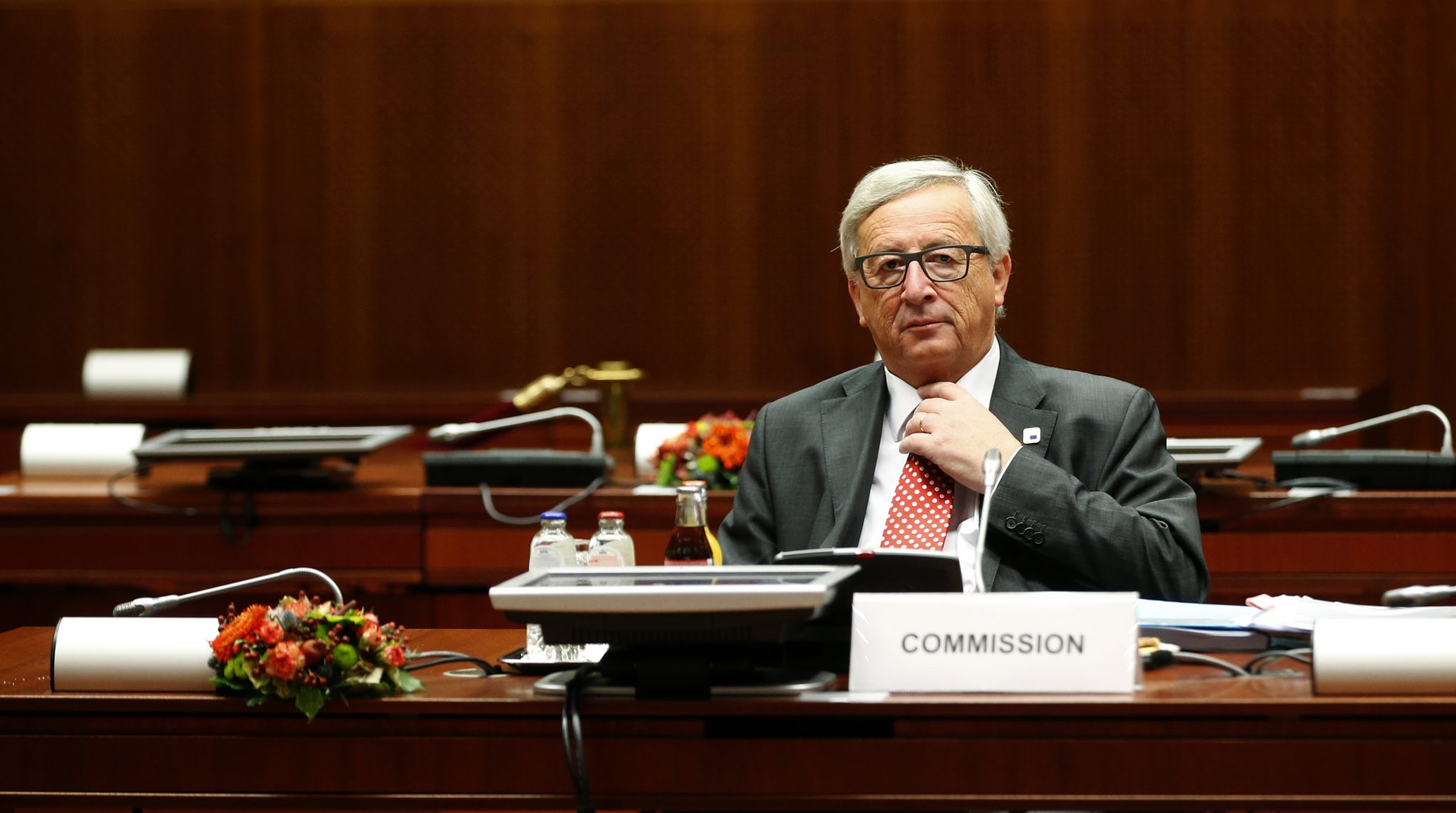
The free trade deal between the EU and Canada, known as the Comprehensive and Economic Trade Agreement (CETA) currently hangs in the balance, with the Walloon regional parliament blocking Belgium from approving the agreement. European Council President Donald Tusk’s doorstep statements at the October Council Summit, revealed the weight of pressure on the EU to conclude CETA:
“The question goes beyond CETA. If we are not able to convince people that trade agreements are in their interests, if we are not able to convince them that our representatives negotiate FTAs to protect people’s interests, then we will have no chance to build public support for free trade. Which means, I’m afraid, that CETA could be our last trade free trade agreement.”
Belgian Prime Minister Charles Michel’s declaration on Monday that his nation was not in a position to sign CETA will likely mean the cancellation of the upcoming EU-Canada summit at which Canadian Prime Minister, Justin Trudeau, and EU Trade Commissioner, Cecilia Malmström, were due to sign the agreement.
What are the obstacles that CETA faces?
While other Member States, such as Romania, Bulgaria and Germany, have had reservations about certain aspects of the EU-Canada agreement, Belgium is the only country vetoing its progress, as the regional parliament of Wallonia refuses to issue its approval of the trade pact.
In particular, it is the Investor Court System (ICS) which remains contentious. ICS is an arbitration mechanism that allows foreign investors to challenge governments, through private tribunals, on policy that has an adverse effect on its business. Walloon Minister-President, Paul Magnette, believes that the current treaty provisions for ICS pose multiple threats to the delivery and protection of European public services and regulatory standards. Before authorising Belgium’s approval of CETA, the Walloon parliament says it wants greater clarification on the tribunals’ revenue stream under ICS, the precise selection process of private arbitrators, and the code of conduct for tribunals.
What further obstacles does CETA face?
From an external perspective, the current delays send a negative message to Canada, and other potential trade partners, as to Europe’s credibility and reliability in forging international agreements. In particular, if the EU-Canada summit cannot go ahead as scheduled on 27 October and a protracted stand-off, we may witness tensions rise, with Canada losing faith in the process.
But the potential obstacles ahead for CETA do not end with the current stand-off. Because CETA is being treated as a ‘mixed agreement’ (although, from a legal standpoint, the European Commission still insists the agreement falls under EU exclusive competences), full application of its provisions is subject to individual ratification by all the Member States. While this process will vary depending on the domestic approval procedure, almost all Member States must seek parliamentary approval. The plan is that CETA will be ‘provisionally applied’ pending ratification, but should any Member State fail to ratify the agreement, there will be another political crisis (just as there was when the Dutch rejected ratification of the Ukraine-EU Association Agreement earlier this year).
What can the UK learn for future free trade negotiations with the EU and beyond?
The first general point is that comprehensive, ‘big-bang’, all or nothing deals such as CETA can be risky. While they potentially deliver the most market access, covering not simply tariffs but also services and investment, there is a greater risk of political roadblock and ending up with nothing. This is particularly relevant as the UK seeks new relationships beyond the EU. It may be able to conclude preferential trading agreements more efficiently by confining provisions to the “low-hanging fruit” of non-sensitive sectors or the reduction of tariffs. As we’ve noted before, striking even basic agreements with China, India and Brazil could deliver gains for the UK, not just in terms of reducing the cost of current trade but opening up new avenues.
But, more specifically, what does the CETA holdup imply for potential UK-EU talks? After all, CETA is mooted as the natural starting point for a bilateral UK-EU deal, given it represents the most comprehensive trade arrangement attempted to date between the EU and a third-country. Does the CETA blockage signify that the UK-EU talks would suffer a similar fate?
There is an obvious difference between CETA and any UK-EU deal. While CETA presents an important opportunity for Canada and the EU to liberalise cross-border trade and investment (and so diversify trading relationships), a future UK-EU deal would be governed by a different dynamic. Rather than seeking further liberalisation, a bilateral UK-EU deal would codify existing trade liberalisation and the resulting trade flows. If anything, the UK-EU deal could mean erecting some new barriers to trade, whereas CETA is about opening new routes to, as yet unrealised, trade. This is not to say that a UK-EU deal would not be without its own difficulties – over migration for example – but it is less clear why it would fall victim to the kind of anti-globalisation objections CETA and the EU-US talks face.
However, there is a risk that if a UK-EU deal was subject to the same process as CETA it too could get held up. So, what are the alternatives? On one hand, the UK and EU could aim for an ‘EU-only agreement’, which would avoid domestically sensitive sectors and bypass the requirement for individual Member State ratification that is necessary for mixed agreements. But this could mean a less ambitious agreement. A forthcoming ruling from the European Court of Justice on whether the EU-Singapore Free Trade Agreement will take the form of an EU-only trade agreement or a mixed agreement, due to be announced early next year, could be crucial in defining this. The ruling will indicate exactly what the inclusion of various areas – specifically sectors such as transport, investment, and sustainable development – the ECJ thinks, as a matter of EU law, makes a trade agreement ‘EU only’ or ‘mixed’.
Alternatively, as Open Europe has suggested before, the UK and the EU could aim to strategically link trade talks and the Article 50 negotiations as a means of fast-tracking a deal. This would mean Britain (and the rest of the EU) dealing with as many important aspects of the future UK-EU relationship (including trade) as possible when negotiating the arrangements for withdrawal – such as continued security and foreign policy coordination, the UK’s budget contribution, and so on.
*This article originally appeared on Open Europe



